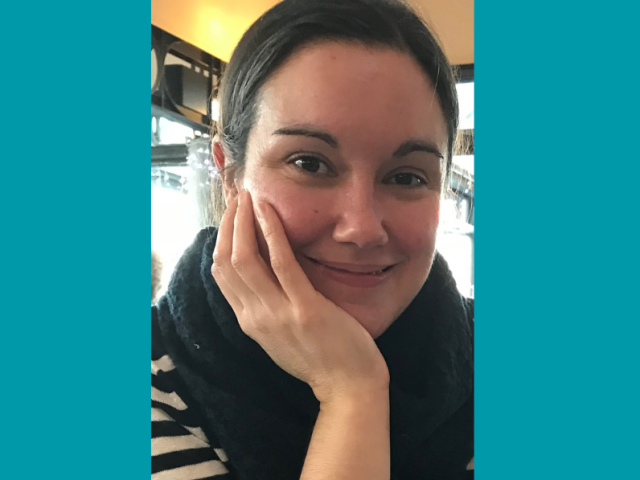
Exploring radiotherapy as a new treatment for inoperable stomach cancer
21 November
Dr Sarah Gwynne is a Consultant Clinical Oncologist at the South West Wales Cancer Centre (SWWCC) in Swansea. She specialises in treating oesophageal and stomach cancers and has a long-standing interest in how radiotherapy could be used to improve outcomes for patients with inoperable oesophagus and stomach cancer.
Over her career, Dr Gwynne has played a key role in national studies looking at how to improve the use of radiotherapy for cancers of the oesophagus (food pipe).
She was part of a team developing and running clinical trials that have defined clinical practice in radiotherapy for these cancers, the SCOPE series and now more recently PROTIEUS.
- NeoSCOPE (2012 – 2016): A phase II trial testing two different chemotherapy–radiotherapy combinations before surgery for oesophageal cancer. It helped identify the most effective and safest approach to take forward into larger national studies.
- SCOPE 2 (2015–ongoing): A follow-up trial from SCOPE which is testing whether giving a higher dose of radiotherapy, combined with modern chemotherapy, can further improve outcomes. Results of the trial are awaited.
- PROTIEUS (ongoing): A current UK study exploring how proton beam therapy, an advanced form of radiotherapy, can be used safely and effectively for food pipe cancer and cancer where the food pipe meets the stomach. It aims to understand whether protons can reduce complications after surgery over standard radiotherapy.
Dr Gwynne and the team in Swansea were part of the network of research sites around the UK that opened these studies, in addition to her leading on the radiotherapy quality assurance of the studies, ensuring that radiotherapy delivered in the trial complied with the protocol and was of the same standard across the UK. These studies provided valuable lessons about how to safely give radiotherapy in cancers of the upper digestive system. These in turn inspired Dr Gwynne’s next research idea.
Developing GastroSCOPE study proposal with Research Time Award
Building on her experiences Dr Gwynne was awarded a Health and Care Research Wales Faculty Research Time Award to have protected time to work on developing a project proposal.
This GastroSCOPE project, if successful, will aim to explore whether modern radiotherapy, combined with the best available chemotherapy, could be used to treat inoperable stomach (gastric) cancer.
She describes this as a project she has “wanted to do for more than a decade,” driven by her passion to improve care for patients who have very limited treatment choices and where the role of radiotherapy is not well defined, unlike in oesophagus, thanks to the SCOPE series.
Currently, radiotherapy for stomach cancer is mostly used to control symptoms such as bleeding or pain. Dr Gwynne’s goal is to find out if, by using more precise radiotherapy, at higher doses and even before symptoms develop, with or without best available chemotherapy, could help to control the cancer and delay or prevent symptoms developing.
If funded, GastroSCOPE would become the first randomised clinical trial in the world to look at the role of radiotherapy in this setting– and the first stomach radiotherapy study in the UK.
Dr Gwynne said that before the award, most of her time was taken up by clinical work, leaving little opportunity to plan research properly.
She added:
“The Research Time Award was so important because it gave me the time out and headspace to actually think about how I would run this study.
“I would not have come as far if it hadn't been for that.”
The award meant she could work closely with a research fellow to review the evidence, build links with other cancer centres and experts, and shape what has now become the GastroSCOPE study proposal and to get ready for applying for funding.
Explore Health and Care Research Wales Faculty pages to find the right funding opportunities or awards to support your research journey.